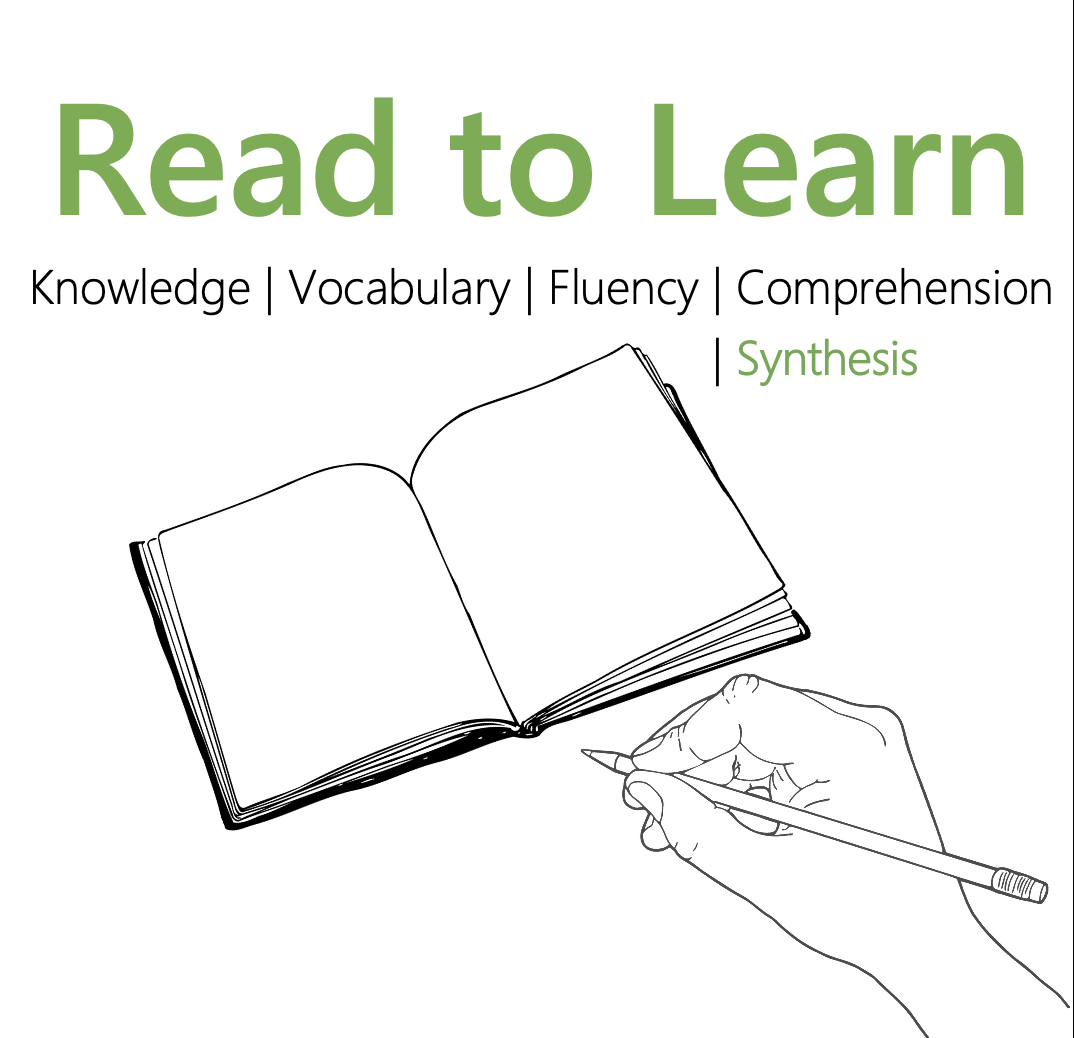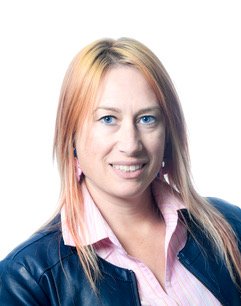

Sarah Powell - Maths Intervention
When teaching mathematics to students who experience difficulty with mathematics, it’s essential to rely on evidence-based practices. In this session, we focus on five evidence-based practices, including modeling and practice, focusing on vocabulary, use of multiple representations, building fluency, and solving word problems.

Reid Smtih - Guided practice in Maths
Guided practice is an important component of explicit instruction, where students are given the opportunity to work alongside a teacher to develop their knowledge and understanding. However, it is also the component that is most likely to be skipped when time is tight.
This session will spend time exploring what guided practice is, its importance in helping students develop mastery, and what guided practice can look like in mathematics.

The Writing Network hosting The Writing Revolution’s Co-CEOs Toni-Ann Vroom & Dina Zoleo
A key goal of the Think Forward Writing Network is to open a conversation about writing in the classroom, using research, trialled techniques, assessment and data collection. Join us for this talk on The Writing Revolution from two key people at TWR: Drs Toni-Ann Vroom & Dina Zoleo

Practical ways to collect and use student behavioural data - Dr Russ Fox
Teachers are required to record data on disruptive or challenging student behaviour within the classroom or yard. This often ends up looking like a long-form narrative record of “what happened” – either posted into the student management system or in a Google Doc. These records can be time-consuming to write and can provide limited impact when trying to understand and plan for a student’s behaviour. This session will be a practically focused webinar aimed at providing teachers with the knowledge and tools to engage in behavioural data collection that matches the needs of their students and context in the most practical ways possible.

Lyn Stone - Spelling Choice Hell - Gippsland Branch
Presenting Spelling Choice Hell. Lyn Stone is a very special guest at Gippsland Branch of Think Forward Educators.

Alex - Blanksby - How do we make the most of examples, explanations, and elaborations?
Cognitive science tells us that, especially with novices, the use of worked examples, direct instruction, and self-explanation and elaboration are key. So, what can we do to make the most of each of these? What are the differences between effective and ineffective uses of examples? How do we make our explanations more impactful? What elaborative questions should we be asking students and have them ask themselves to get more out of a given question?

Read 2 Learn Australian Units - Call for Writers
Get the lowdown on the Australian History and Geography Units planned for this project. Read2Learn (r2L) is Brandon Park Primary’s new platform for teaching reading comprehension within a knowledge-rich curriculum. This is an evolution from their work in recent years to teach reading comprehension explicitly and in a way that gets students focussed on in-depth text. Hear about next round for this ambitious project, where we are seeking to produce high-quality units that develop knowledge and reading/writing expertise in students, focusing particularly on Australian history and geography.

Marshall Roberts - Putting the tract in tractor: Dragging literacy out of the dark ages - TAS Branch
Marshall Roberts talks about his family’s journey into home tutoring and literacy advocacy. Marshall will discuss his family’s background story, what fired him up, what he’s learnt along the way, some parallels between education and farming cultures (yes, really!) and what he’d do differently in hindsight. He will also share some reflections and information for other parents who may be just at the point of thinking “something’s not right”.

Principals’ Forum - Marsden Road Public School - Manisha Gazula
Open to all Principals and Assistant/Deputy Principals. Manisha Gazula is a passionate educator with a fundamental focus on improving student outcomes. She is Principal of Marsen Road Public School.
In 2019, Marsden Road Public School received the Executive Directors Award for significant contributions towards advancing the strategic goals of the NSW Department of Education.

Dr Daniel Ansari - Building blocks of mathematical competence
Recent research has shown that basic number processing (such as comparing which of two numbers is larger) is related to individual differences in children’s arithmetic achievement. Furthermore, children with mathematical disabilities (Developmental Dyscalculia) have been found to perform poorly on basic number processing tasks. In this talk I will review evidence for an association between basic number processing and arithmetic achievement in children with and without mathematical difficulties. I will draw on evidence from both brain and behavior and discuss the implications of this research for assessment, diagnosis and intervention.

Middle Leaders’ Forum - Embedding Explicit Direct Instruction: Rosenshine’s Principles
Calling all current and aspiring Middle Leaders. We are building the existing Think Forward Educator network to better support Middle Leaders and share your insights and challenges you currently face. Let’s hear your voice! Our second event was: Embedding Explicit Direct Instruction with Bradley Busch

SA Branch: Tier 2 Intervention for Secondary Students
This session will share the innovative practice of two speech pathologists and the literacy leadership teams they work with at Craigmore High School and Parafield Gardens High School.Grounded in the science of reading, a wave 2 evidence-informed reading intervention program for year 7 and 8 students who have word reading (decoding) ages between 6 to 10 years will be outlined. Participants will gain an understanding of the assessment process, the intervention, and positive outcomes achieved across the two schools.This presentation is relevant to primary and high school teachers and leaders who have an interest in improving student reading ability, or who are curious about what Speech Pathology can offer in a high school setting or adolescent reading intervention space.

Mentor Program Meeting Feb 9 2023
Our Mentor Program pairs volunteer mentors with educators wanting guidance or support on that journey.Our mentors provide free support for educators who want to know more about pathways for integrating the science of learning into their practice for the benefit of all students.
Mentors and Mentees of the Semester 2 2023 Mentor Program came together for this welcome session

Middle Leaders’ Forum - How Cognitive Load Theory Changed My Teaching
Calling all current and aspiring Middle Leaders. We are building the existing Think Forward Educator network to better support Middle Leaders and share your insights and challenges you currently face. Let’s hear your voice! Our first event was: How Cognitive Load Theory changed my teaching

Toni Hatten-Roberts - Science of Maths and the Importance of Fluency
How many times do you hear - 'but they don’t know their facts!' Being able to recall multiplication number facts might just be one of the single most important skills that all students need to have mastered by Year 4 to succeed in any future mathematics. Math fact fluency is the ability to quickly and accurately recall the answer to basic math facts. Research on cognitive load supports the idea that we can reduce the load for our students through the fluent recall of facts. However, educators cannot rely anymore on ‘the back of the toilet door’ strategies; nor repeat the ‘rote’ procedures of the past. In this session we explore the ‘why’, ‘what’ and ‘how’ in supporting student maths fluency of facts and more!

James Dobson - Laying Mathematical Foundations - Maths Network
The Science of Learning is revolutionising Reading instruction. In contrast, the impact of the Science of Learning has been limited in a Maths space dominated by mindsets, productive struggle and rich tasks. In this session James will take us through the structure of a typical Maths lesson in his class. He will demonstrate how using a Revise-Learn-Apply framework supports student learning. James will unpack how employing a Science of Learning approach, coupled with high expectations, allows teachers to build a strong foundation for their students.

Read 2 Learn Australian Units - Project Update
Get the lowdown on the Australian History and Geography Units planned for this project. Read2Learn (r2L) is Brandon Park Primary’s new platform for teaching reading comprehension within a knowledge-rich curriculum. This is an evolution from their work in recent years to teach reading comprehension explicitly and in a way that gets students focussed on in-depth text. Hear about the ambitious project to share our curriculum resources with you, and collaborate with other schools to produce high-quality units that develop knowledge and reading/writing expertise in students.

Amanda VanDerHeyden Science of Maths - Maths Network
Armstrong Creek School presents Dr Amanda VanDerHeyden, an international renowned policy adviser and thought leader who actively conducts research focused on improving learning outcomes for students. Join us as Dr VanDerHeyden discusses her expertise across the Science of Maths, as well as maths intervention within a multi tiered system of supports.

Dive into DIBELS Reading Assessment - Vanessa Basilone
Take a dive into the DIBELS reading assessment. DIBELS is a freely available reading assessment from the University of Oregon, for students from Foundation to Year 8. This session covers how, when and why to use DIBELS as part of literacy assessment in primary schools and into early high school. See examples of how DIBELS is used at Carlton Primary School to inform planning for classroom and intervention teaching.
